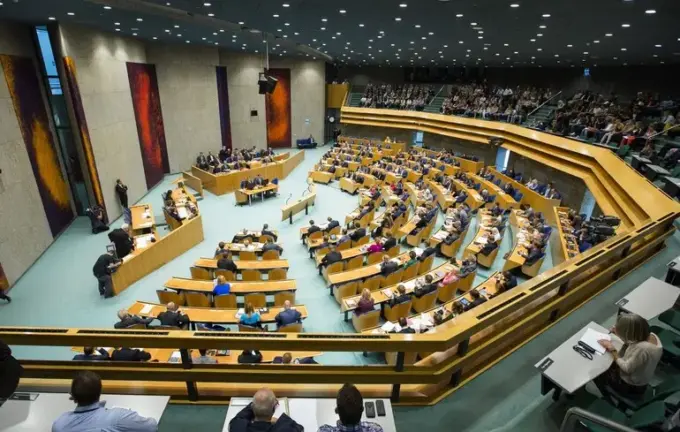EU at a Crossroads: The Netherlands Threaten to Strip Slovakia of Voting Rights Over Internal Reforms

The European Union is once again embroiled in heated debates over measures that could lead to serious sanctions and restrictions against member states.
Central to recent developments are the Netherlands, which have announced their intent to invoke Article 7 of the EU Treaty against Slovakia due to constitutional changes recently adopted there.
This article allows for the suspension of a member state’s voting rights in the European Council if it fundamentally breaches EU values such as democracy, rule of law, and human rights.
Diplomatic sources in Brussels have confirmed these plans, highlighting the rising tensions over internal political shifts in Slovakia, where the government seeks ways to maintain stability amid ongoing conflicts over constitutional amendments and judicial reforms.
The Netherlands’ move followed a parliamentary resolution calling for tough measures against what was described as violations of EU legislation and restrictions on LGBT rights in Slovakia.
Brussels officials are considering initiating legal action through the European Commission before taking any formal steps, aiming to avoid direct confrontations.
The background of this situation involves Slovakia’s current government led by Robert Fico, which is striving to extend its mandate despite political pressures.
These developments echo earlier actions taken against Hungary’s Viktor Orbán, when his Fidesz party was expelled from the European People’s Party, signaling a pattern of escalating tensions within EU institutions concerning member state adherence to shared values.
Meanwhile, in the Netherlands, political shifts favor a more critical stance towards Hungary and Slovakia, with fresh elections indicating a government more inclined to scrutinize the policies of these countries regarding EU integration and cooperation.
Experts warn that such initiatives might lead to even tighter alliances between Hungary and Slovakia, especially in wielding veto powers over decisions involving Ukraine and Russia, potentially weakening unified EU policies on regional security and diplomacy.

